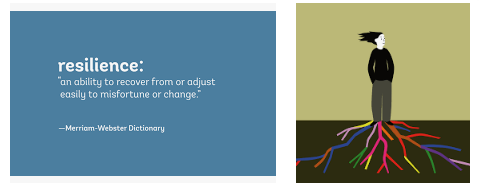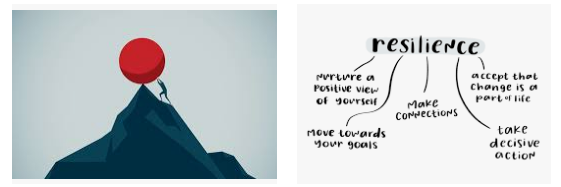Resilience
Why is resilience important and how does it help us?
Resilience is not a personality trait, or something you are born with. Resilience is about thoughts, feelings and behaviours that can be learned, and can help you bounce back after facing adversity. For parents, building resilience in children can be key to helping your child prepare for what the future may hold.
Building resilience—the ability to adapt well to adversity, trauma, tragedy, threats, or even significant sources of stress—can help our children manage stress and feelings of anxiety and uncertainty. However, being resilient does not mean that children won’t experience difficulty or distress. Emotional pain, sadness, and anxiety are common when we have suffered major trauma or personal loss, or even when we hear of someone else’s loss or trauma.
PSHE (Personal, Social, Health and Economic) Education
We teach the concept of Resilience through our PSHE Education curriculum as part of our Personal Development and Character Education learning.
The PSHE Association’s Programme of Study: Health Education: Ourselves, growing and changing describes what our pupils learn:
H24: how to manage when things get difficult.
(By the end of Key Stage 1/ Year 2)
H29: about how to manage setbacks/perceived failures, including how to re-frame unhelpful thinking.
(By the end of Key Stage 2/Year 6)
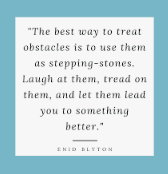

We also foster Resilience in daily life across other school activities and subjects such as whole school assemblies, through our classroom ethos, School Values and Vision, during playtimes and through exploring a range of stories as stimuli for discussion.
Building Resilience at School through (the building blocks of) The 7 Cs…
DR KENNETH GINSBURG, CHILD PAEDIATRICIAN AND HUMAN DEVELOPMENT EXPERT, PROPOSES THAT THERE ARE 7 INTEGRAL AND INTERRELATED COMPONENTS THAT MAKE UP BEING RESILIENT – COMPETENCE, CONFIDENCE, CONNECTION, CHARACTER, CONTRIBUTION, COPING AND CONTROL.
1. Competence
Children need to be seen when they are doing something right and to be given opportunities to develop specific skills.
If children in our class display a particular passion for something or aptitude for a specific skill, activity or sport, we need to recognise this and let them know we’ve noticed and encourage them.
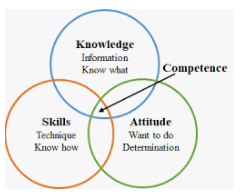
2. Confidence
The solid belief in one’s own abilities is everything.
As we teach and nurture, we build children’s confidence. Children need confidence to be able to navigate the world, think outside the box, and recover from challenges.
We need to be careful not to undermine confidence but develop it by encouraging children to achieve and creating age-appropriate opportunities for experiencing success.

3. Connection
When children are part of a community (class, team, club) they know they aren’t alone if they struggle and that they can develop creative solutions to problems.
Close ties to family, friends, school, and community give children a sense of security.
 4. Character
4. Character
Children need an understanding of right and wrong and the capacity to follow a moral compass.
A fundamental sense of right and wrong helps children make wise choices, contribute to the world, and become stable adults.
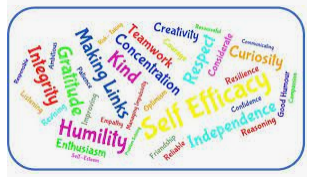
5. Contribution
The experience of offering their own service makes it easier for children to ask for help when they need it.
Once children understand the feel-good factor of helping others, it becomes easier to ask for help when it’s needed – being willing to ask for help is a big part of being resilient. Children who learn to cope effectively with stress are better prepared to overcome life’s challenges.
6. Coping
Children need healthy coping strategies to manage their stress.
Children who possess a variety of healthy coping strategies will be less likely to turn to dangerous quick fixes when stressed.
Some strategies involve engaging and disengaging such as breaking down seemingly impossible problems and challenges into smaller, achievable pieces, avoiding things that trigger extreme anxiety, and just letting some things go.
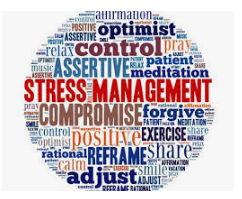
7. Control
Children who understand privileges and respect are earned through demonstrated responsibility will learn to make wise choices and feel a sense of control.
Children need to feel like they have a degree of control over their lives and their environment.
When they realise that they can control their decisions and actions, they’re more likely to know that they have what it takes to bounce back.

How can parents/carers foster resilience at home?
BY HELPING YOUR CHILD FOCUS ON THOSE SEVEN QUALITIES, YOU CAN HELP YOUR CHILD BECOME MORE FLEXIBLE AND MORE EASILY RECOVER FROM LIFE’S CHALLENGES.
Please click on the hyperlinked title above for further suggestions.
Protective Factors for Positive Mental Health: The 4 Ps
NOTES FROM DR POOKY KNIGHTSMITH’S (FROM CREATIVE EDUCATION) TRAINING ON
“A PRACTICAL APPROACH TO PROMOTING RESILIENCE”
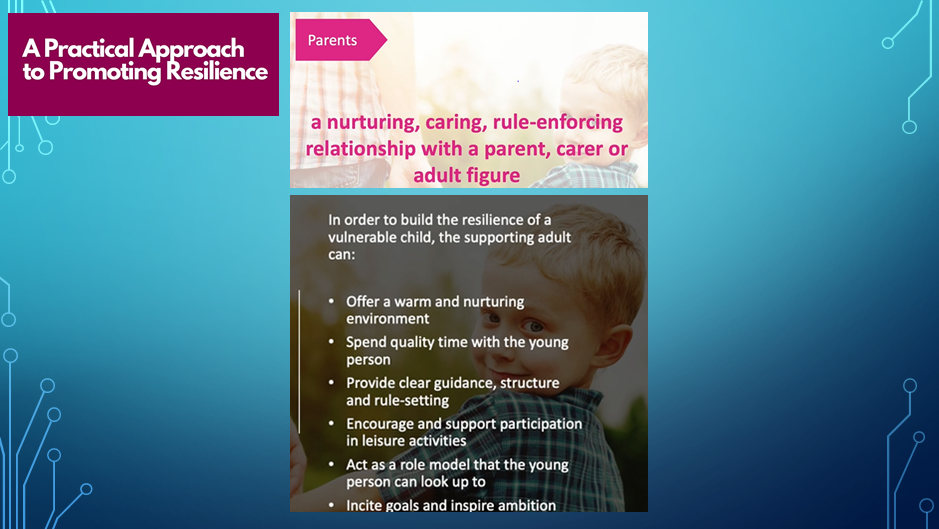
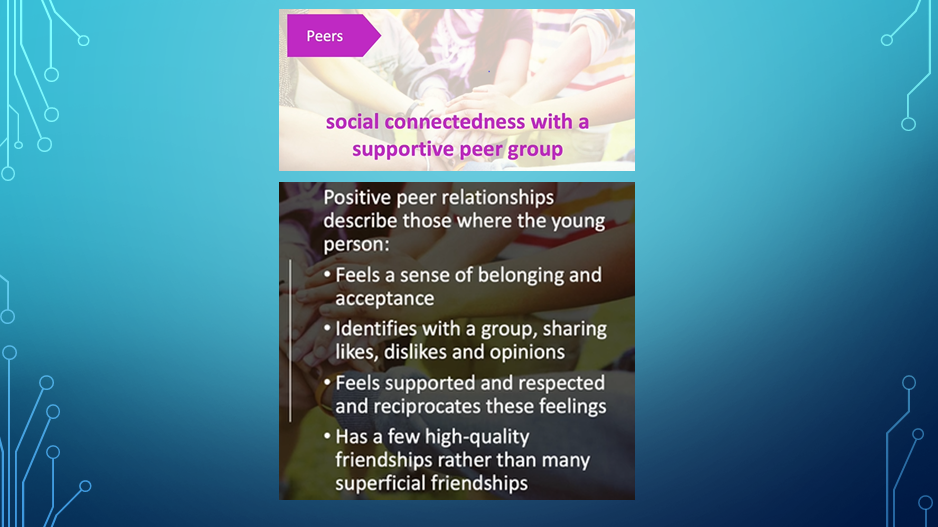
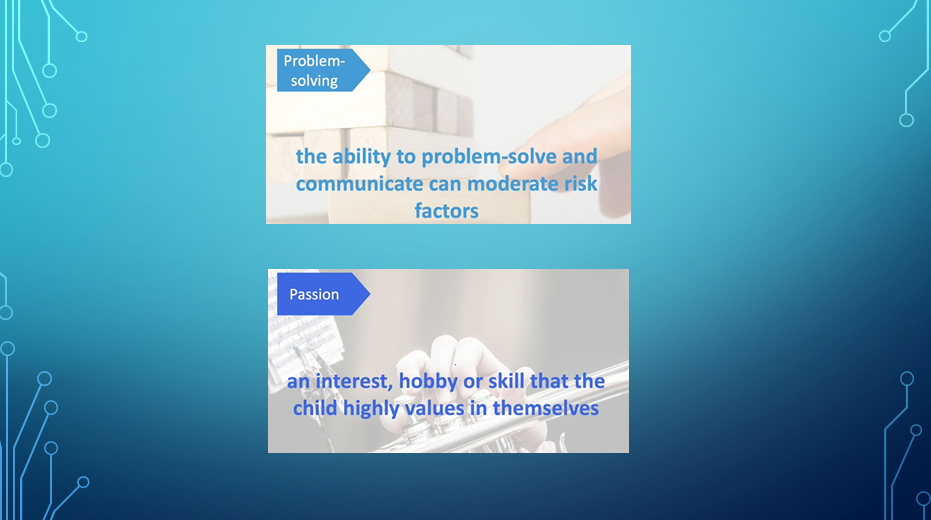
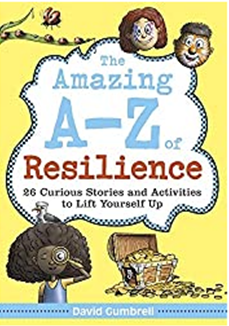

Doug the Slug feels unloved, has a set- back or two but then overcomes being thought of as too slimy…- EYFS
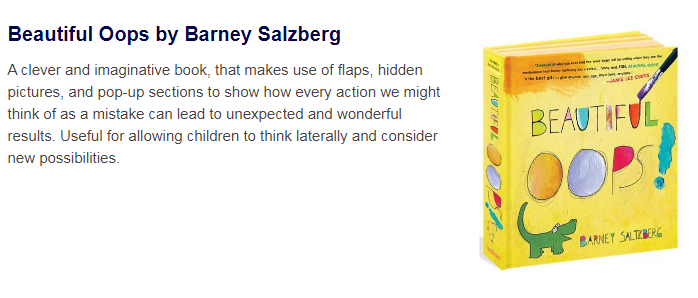
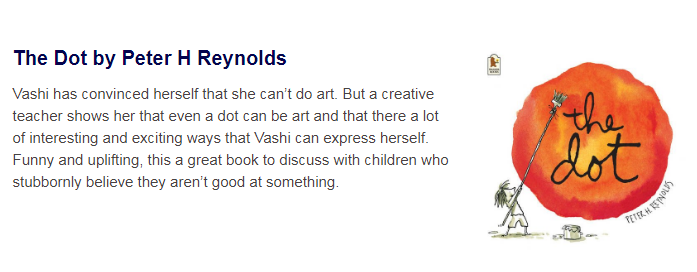
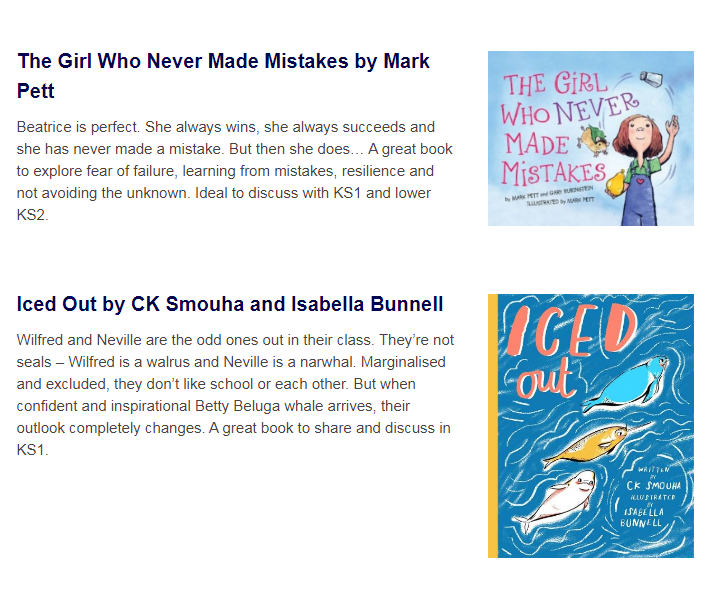
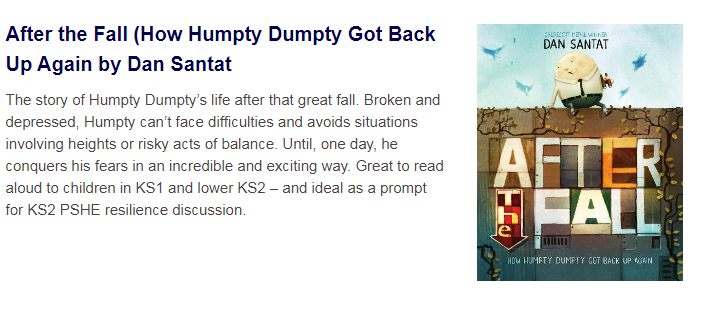
Further Suggestions for Parents and Carers
Tips to build resilience– Chelsea Lee Smith


